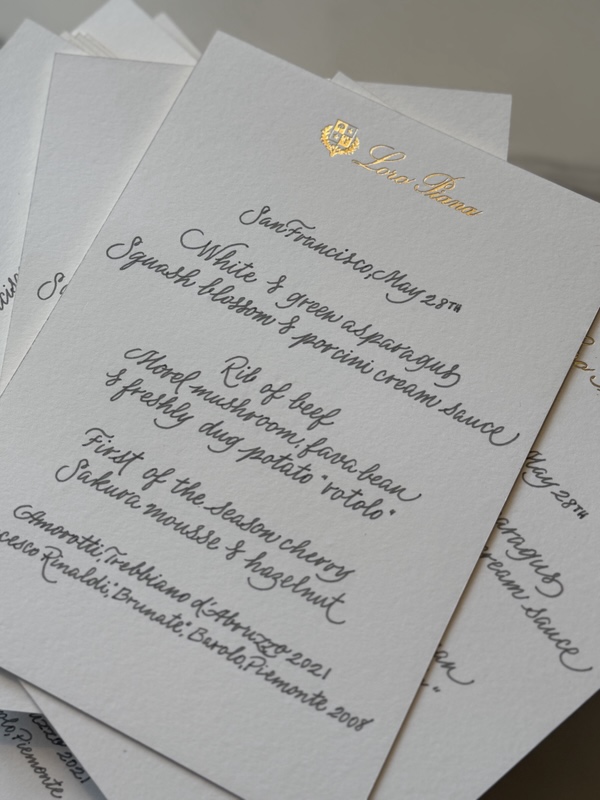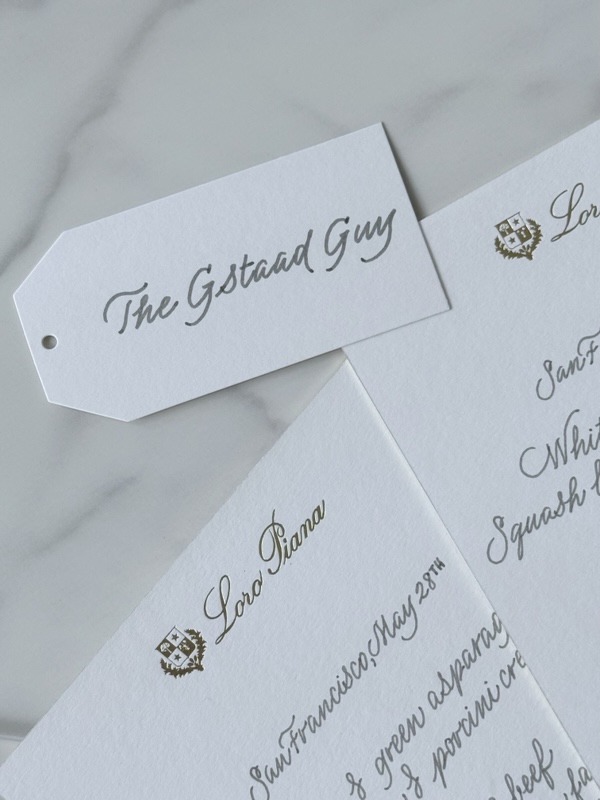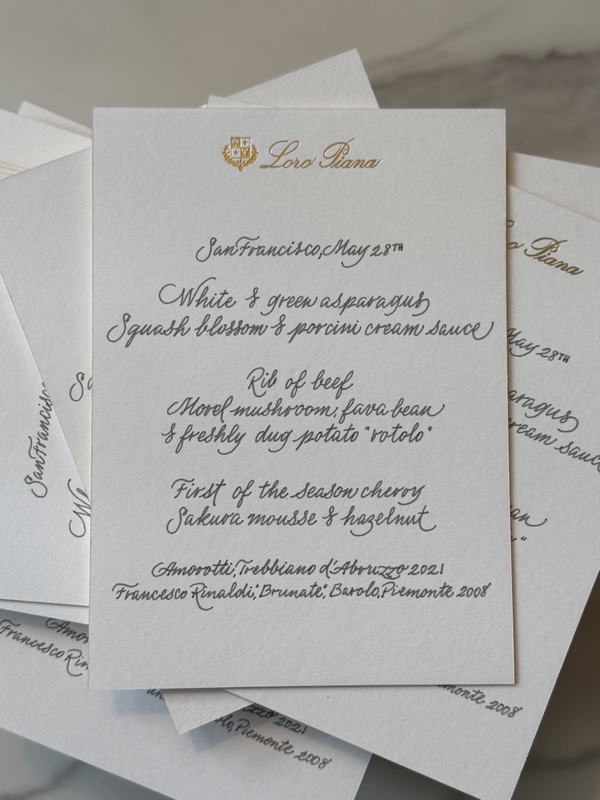
Why Handwritten Calligraphy Menus Create Lasting Impressions
When we think about event menus, it’s easy to see them as purely functional — a simple list of courses for guests to read before dinner begins. But menus can be so much more than that. They set the tone, spark anticipation, and in many ways, shape the guest experience.
This past May, I had the pleasure of creating handwritten calligraphy menus for Loro Piana’s event in San Francisco. Every single menu was written by hand — not printed, not digitally designed — but carefully lettered in ink. And that small detail made all the difference.
Menus as a First Impression
Before the first course is served, the menu is the first piece a guest touches. It’s often placed right at their seat, waiting to welcome them to the table — often alongside other details like place cards or personalized tags.
For this event, I created both the handwritten menus and coordinating place cards, ensuring every guest felt thoughtfully considered from the moment they sat down. Details like these work together to create a cohesive design that’s as functional as it is meaningful.
But menus aren’t just a design detail. They also highlight the artistry of the chefs. Each menu is essentially a story of the evening’s courses — the way flavors are paired, the order in which dishes are presented, and the seasonal inspiration behind the meal. By handwriting the menus, I was able to give that culinary vision the same care on paper that the chefs brought to the table itself.

Why Handwriting Each Menu Matters
Many of the events I work on feature printed menus personalized with guest names, which look beautiful and elegant. But handwriting the entire menu adds another layer of meaning.
Each menu becomes unique. Each guest feels like their place at the table was prepared with artistry and care. It transforms something functional into something memorable — a keepsake they may even want to take home.
Personalization as an Experience
Personalization isn’t just about style. It’s about creating an experience.
When guests see calligraphy menus, they often pause. They notice the curves of the letters, the weight of the ink, the artistry behind each stroke. It slows the moment down, inviting them to feel more connected to the evening.
And because the menu reflects the freshest ingredients available, what’s written on the page is a true representation of what guests are about to enjoy.

Chefs often refine their menus in the days leading up to an event, ensuring each dish features the best the season has to offer. Handwritten menus allow for this flexibility — so when a guest reads it at the table, they know they are seeing the most thoughtful, curated version of the meal.
Behind the Ink
Creating handwritten menus and place cards requires time, patience, and a steady hand. For the Loro Piana event, I spent hours carefully writing each course and each guest’s name so that every piece felt cohesive, elegant, and intentional.
This behind-the-scenes dedication may not always be visible, but it’s felt by the guests. And when paired with the chef’s artistry, the calligraphy becomes the final touch that brings everything together — the food, the setting, the memory.
Final Thoughts
When brands and planners invest in details like handwritten calligraphy menus and place cards, they aren’t just decorating a table — they’re creating experiences. These thoughtful touches don’t simply tell guests where to sit or what’s for dinner. They highlight the chef’s vision, make guests feel valued, and create moments that linger long after the evening is over.
If you’re planning a corporate dinner, private event, or brand activation and want details that guests will truly remember, I’d love to connect.
Contact me! https://blancalewis.com/contact
www.blancalewis.com